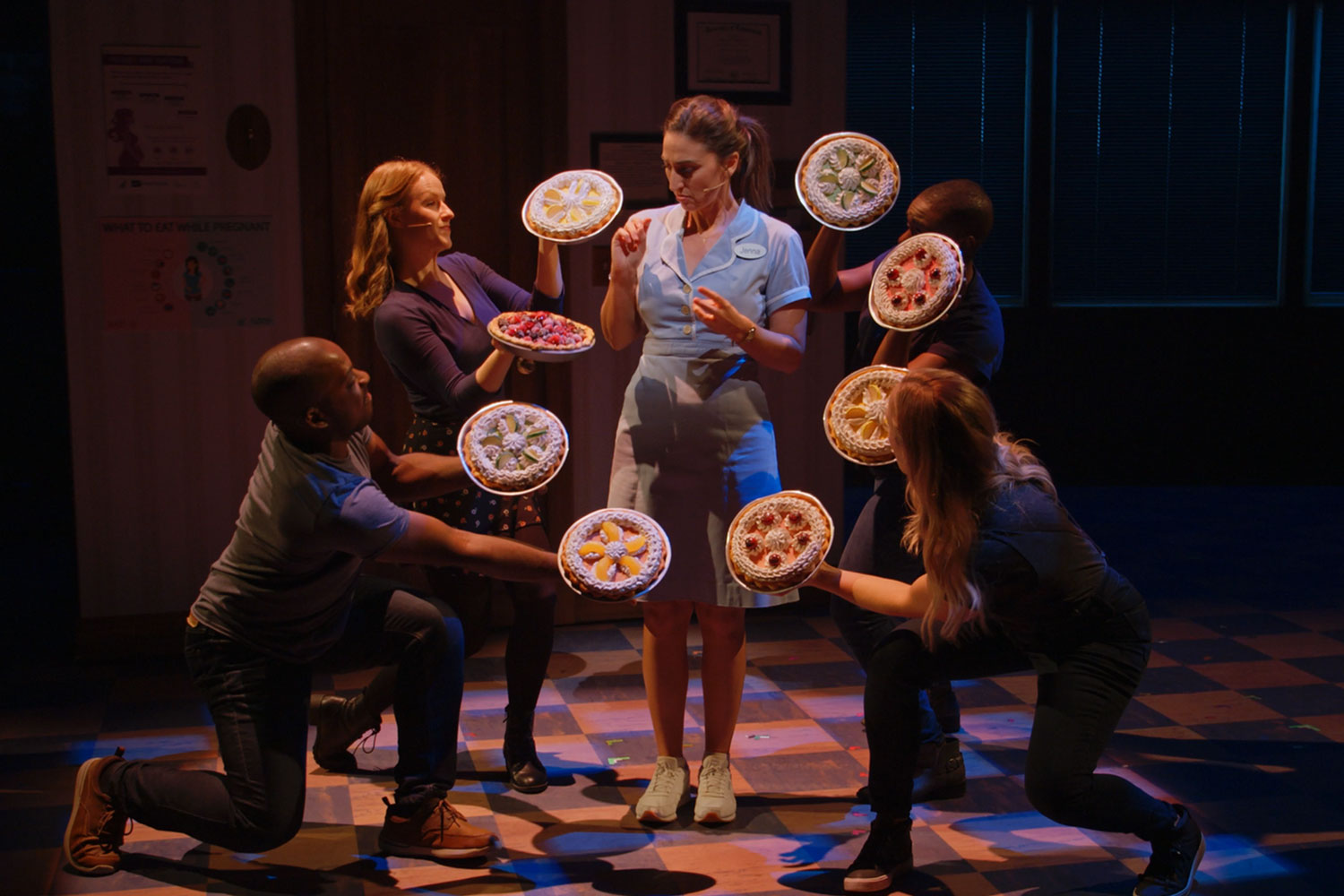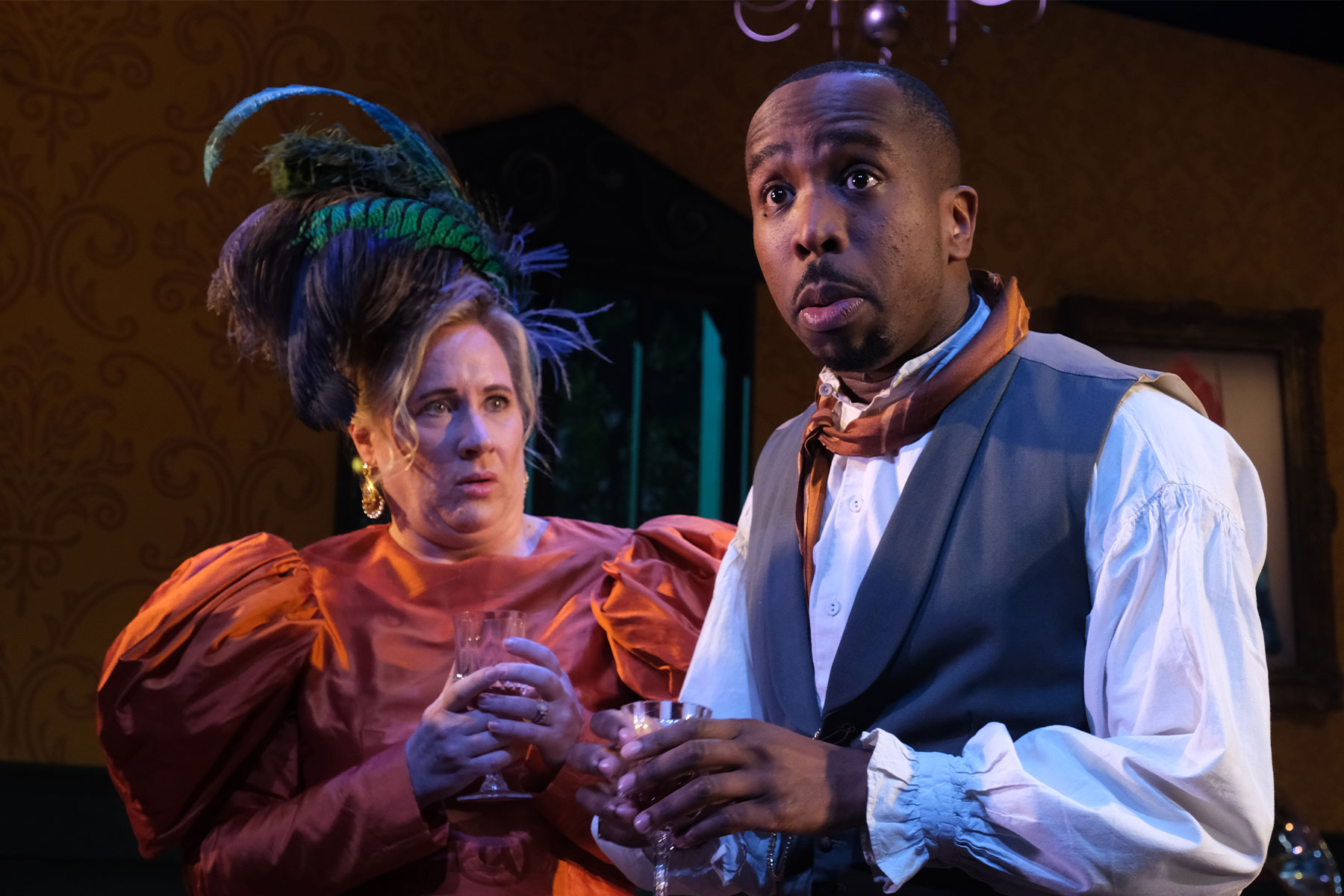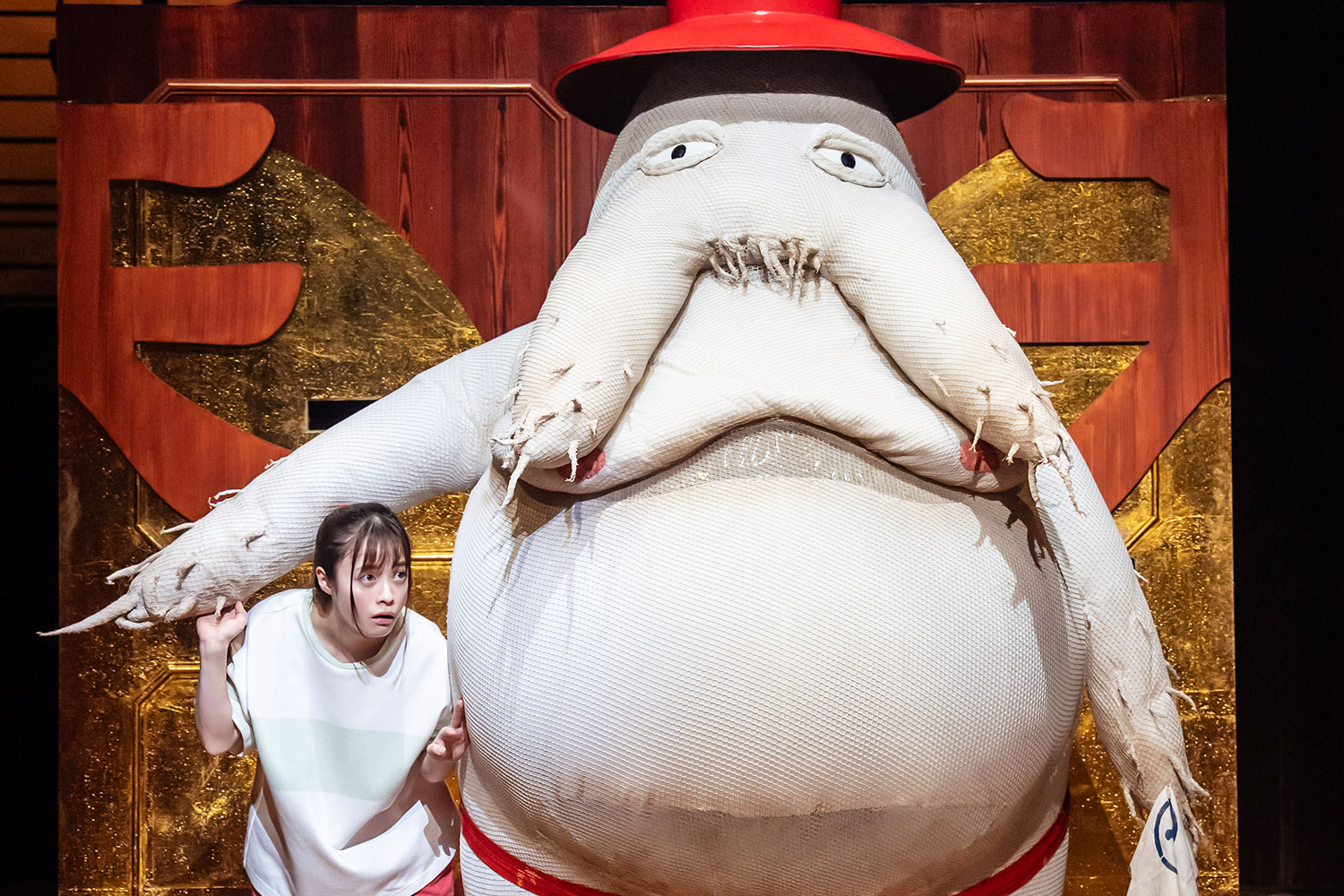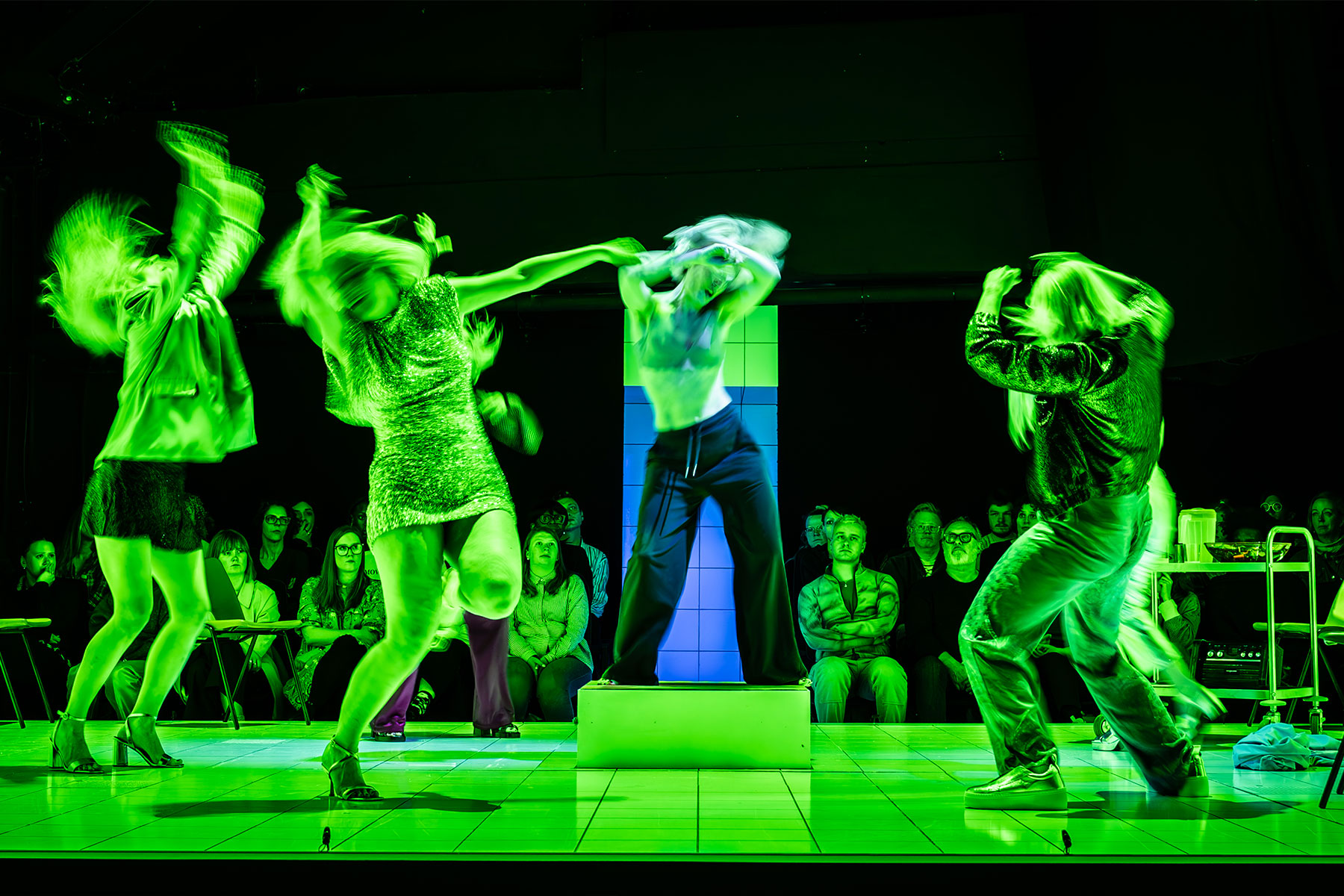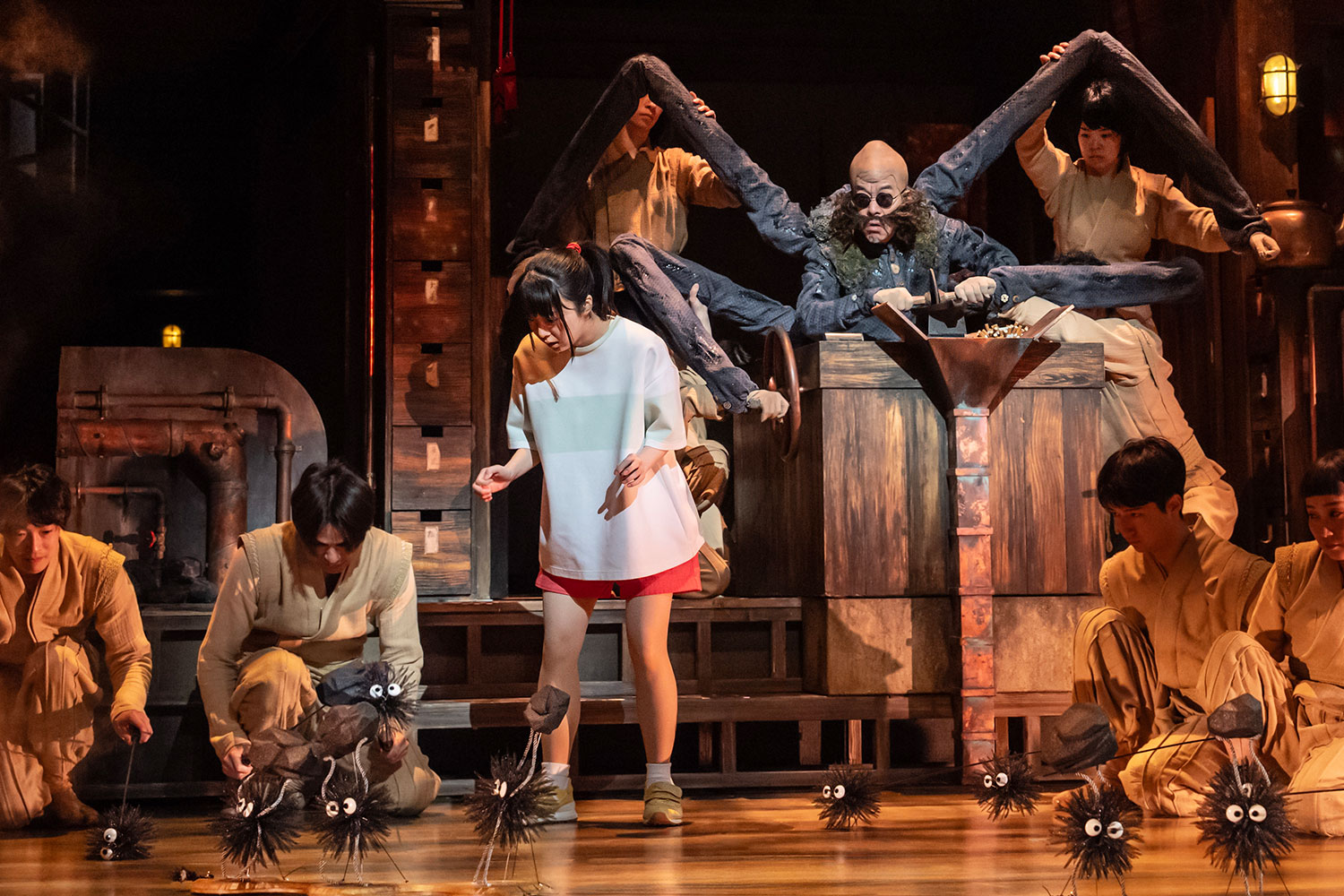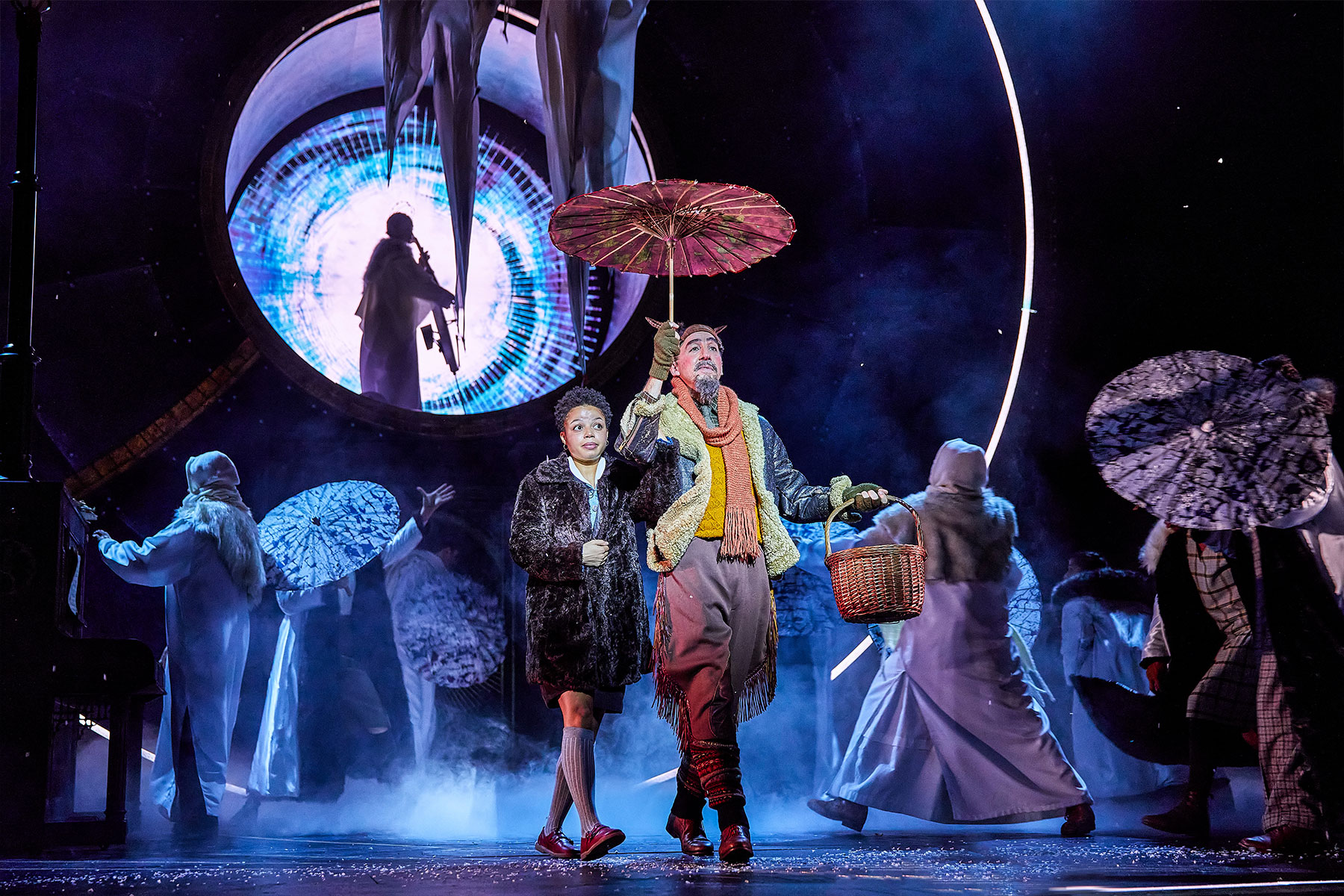Review: My Brilliant Friend (Rose Theatre Kingston)
What a task this is. Elena Ferrante’s four Neapolitan novels, fiercely beloved by fans, brought to life over two parts and five hours. That’s still a major act of selection and compression, and there are times when My Brilliant Friend scuttles and skips when you want it to bed in, delve deep. But this is nonetheless a huge achievement: adaptor April De Angelis and director Melly Still have made an epic stage show that is absolutely as addictive as the books. The Neapolitan novels have been likened to a binge-watch box-set, to be consumed greedily; this is a theatrical equivalent.
The time in the stalls flies by, as the years do in the six decades of friendship and rivalry between Ferrante’s protagonists, Lenu and Lila, growing up in an impoverished neighbourhood in post-war Naples. Tricky task, too, for the actors inhabiting these roles – Ferrante’s characters are so vividly drawn, their relationship such a feverish, complicated mix of love and hate, jealousy and support. It’s still rare to see such a candid portrayal of female friendship, and that goes for the theatre as much as literature. Happily, My Brilliant Friend is very well cast: Niamh Cusack‘s face flickers with every conflicted emotion Lenu feels, her hunger and her neediness, her admiration and envy, while Catherine McCormack has the animal magnetism Lila demands: scornful yet seductive, one moment wild, the next cleverly calculating. They zing off each other.
They must also cover a vast amount of ground. If my heart sank initially at adult actors playing little girls, it soon rose again: this is a delightfully unaffected production. There’s no annoying voices or simpering, yet some looseness of limbs and ardency of emotion makes you simply know these middle-aged actresses are children, or teenagers. There’s not too much straining to be Italian, either, thank god: actors all speak in their own accents, and dialect is evoked through liberal use of British swearwords; "twat" and "shithole" seem perfectly appropriate in their lively but hard-scrabble neighbourhood.
I’m a fan of the books, and found it hugely enjoyable watching them come to life. I loved settling in for the long-haul. But what someone who hasn’t read them would make of the show is harder to predict. I suspect the salami-slicing of the vast plot – marriages and break-ups and children, underlying battles of power and corruption and violence – could be bewildering, and rather frustrating.
While Cusack and McCormack form the beating heart of the show, the rest of the 12-strong, busy cast take on several roles apiece. The books have a huge web of characters and subplots, here often skimmed over. De Angelis and Still manage to stage this vast amount of material with levity and brevity, but at times it does become a breathless whirl of exposition, characters barely introduced before they’re ditched. Some performances – especially, sadly, portrayals of older women – stray into cheap caricature, which doesn’t help.
Still, there’s plenty to draw the viewer in: condensed as it is, the soapy, melodramatic elements of the plot go to work on you. But De Angelis’ adaptation has real verve too. Seeing the story in one sitting, you’re very much confronted by the violence – physical, emotional, existential – that men inflict on women in all strata of society. History repeats itself. Misogyny rumbles down the generations. Yet Lenu and Lila never feel like victims: there’s tremendous spirit on display. De Angelis allows the feminist arguments of Ferrante’s work to live and breathe, and while they snarl in the face of patriarchy, they also laugh in it. These women will not, in the end, allow men to "fabricate" them, contain them, define their terms of existence and success.
This production also, happily, feels like a distinctly theatrical take on its material: it’s no wannabe-movie. Cars are made with lamps, the sea with billowing silks. Exaggerated, expressionistic silhouettes or (sometimes less successfully) suggestive movement sequences are used to imply mental breakdowns or ruptures. Puppetry both adorably evokes Lenu and Lila’s babies, and chillingly stages domestic abuse.
Jon Nicholls’ hard-working sound design transports us, both geographically – with the blare of city traffic or the rush of the ocean – and chronologically, with snippets of pop hits from The Beatles to Bowie pegging the years as they rush by. It’s matched by Malcolm Rippeth’s lighting, which also helps clarify the switchblade fast changes of scene. And with a stripped-back playing space covered in rusty fire escapes and scaffolding, designer Soutra Gilmour suggests something of the scruffy, claustrophobic nature of the Naples neighbourhood, even if the theatre’s wide stage makes a suitably grand canvas for this epic story.
My Brilliant Friend runs at the Rose Theatre, Kingston until 2 April.



